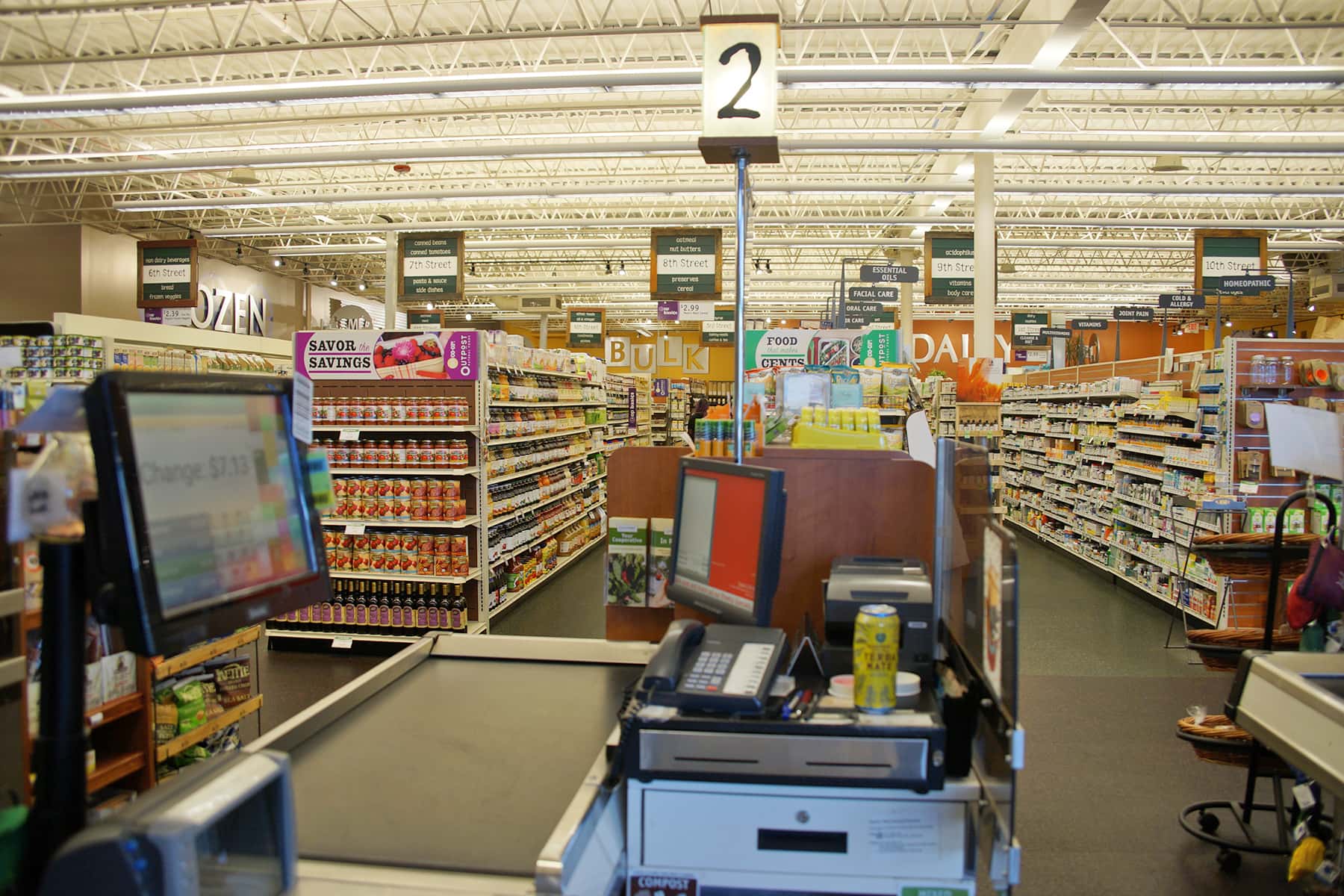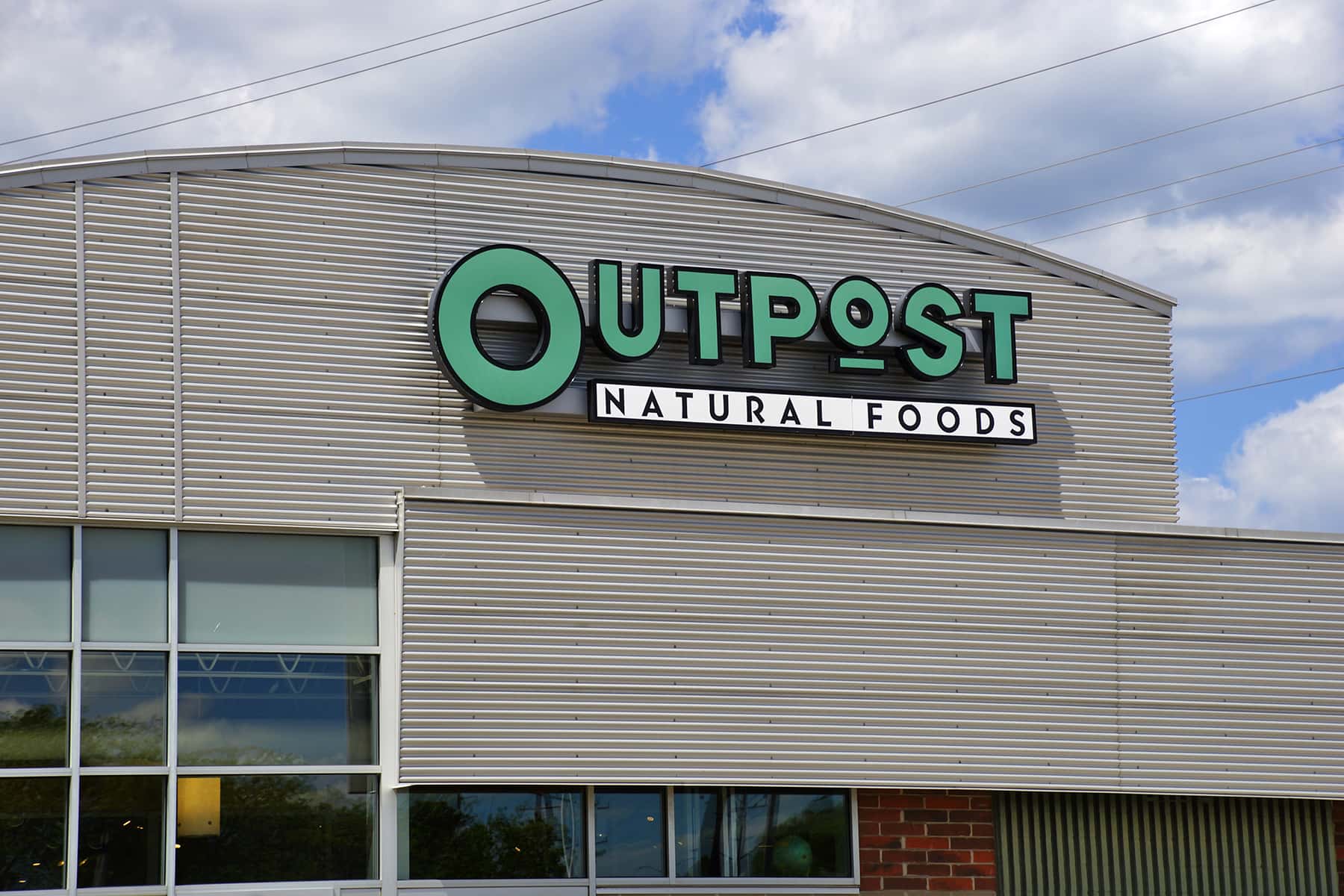
Outpost Natural Foods recently announced its commitment to eliminate petroleum-based plastic co-op packaging and consumables by 2022, and has organized a comprehensive internal committee to tackle the wide-ranging issue.
The co-op has tasked itself with this challenging goal as the environmental problems associated with single-use plastic continue to ratchet up, both locally and globally. Outpost has already taken the first steps to reducing single-use plastic.
“As spring arrives it is more clear than ever how plastic litters our public spaces. With a low percentage of plastic actually being recycled into new materials it is crucial that we use our platform in the business community to raise awareness about alternatives and come up with solutions,” said Kurt Baehmann, Outpost’s Sustainability Manager. “Tracking our usage is integral to taking steps forward, and by releasing our seventh annual Sustainability Report in honor of Earth Day we take seriously our commitment to continuous improvement.”
As the only multi-store Milwaukee-area grocer to have already eliminated single-use plastic shopping bags, the co-op has instead put the focus on numerous re-usable and recyclable options for consumers. Since the majority of Outpost customers were already widely using cloth shopping bags, it was an easy adaptation to move forward.
Last year Outpost shoppers reused 263,802 bags, a 12% increase over the prior year. Forest Stewardship Council certified paper shopping bags are the alternative. In addition to reuse options, compostable bio-plastics and paperware can be found throughout all food service counters at Outpost, including compostable meat trays.
Shoppers will have the option of compostable plastic produce bags, as well as expanded access to paper bags and reusable produce bags. Baehmann believes that even though there are constraints, it is an important challenge to tackle.
“As we investigate options in increasing our usage of plant-based plastics and continue to support municipal composting we decided to move quickly in the areas that would be good for the planet, improve the customer’s experience and look out for our bottom line, which is vital to our co-op’s 22,000+ owners,” added Baehmann. “It’s not a one-sided problem. We all have to take a long hard look at what we are doing to reduce the persistence of convenience packaging in the waste stream.”
The irony of the situation is that plastic still remains one of the most sturdy, safe and sanitary means to offer convenient grab and go food options. This is one issue Outpost’s plastic committee is dealing with head on as it inventories the multiple ways it uses plastic in its food service departments.
Other types of packaging exist, but they do not stand up to the rigors of the marketplace or may require a municipal commercial composting infrastructure that is not available yet to the general consumer.
Outpost’s efforts to remove plastic cannot be implemented without shopper participation and education. Fueled by images of petroleum-based plastic waste in both urban and natural environments, clogging oceans and beaches, fowling waterways, and harming wildlife, consumers are looking to retail business to solve the problem of single-use plastic.
However, business can only go so far if consumers still demand convenience and the inherent waste that results. Understanding alternatives is a good start in addressing convenience options:
- Prepare more meals at home and carry leftovers in reusable containers
- Shop with more reusable items like bags and containers and keep them handy in your car, briefcase or backpack
- Carry a reusable water bottle to refill at drinking fountains
- Pack reusable lunchbox options like washable zipper snack and sandwich bags, stainless steel straws and eco-friendly utensils
- Consider biodegradable and compostable bags for home waste management
- Shop the Outpost bulk department; use even less packaging by bringing in pre-weighed and inspected clean, transparent containers
- Clean and recycle only those items that are truly recyclable according to your municipality
Local health department regulations do not allow shoppers to bring their own container to deli and meat counters in order to maintain sanitary conditions.
Milwaukee is fortunate to have the City’s Environmental Collaboration Office (ECO) as a partner in supporting businesses who would like to address their environmental impact.
© Photo
Lee Matz















